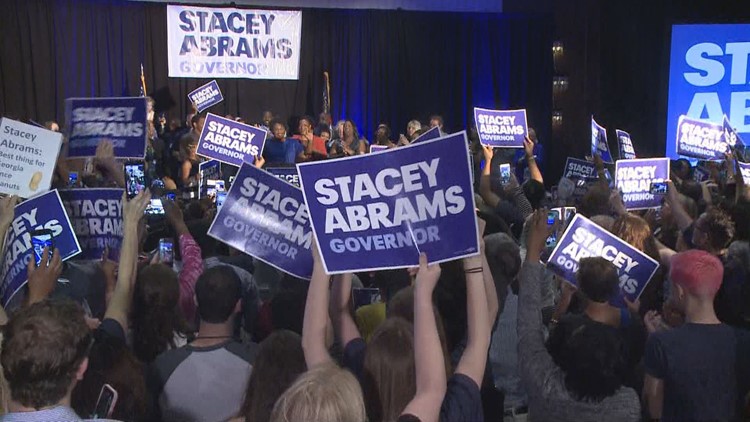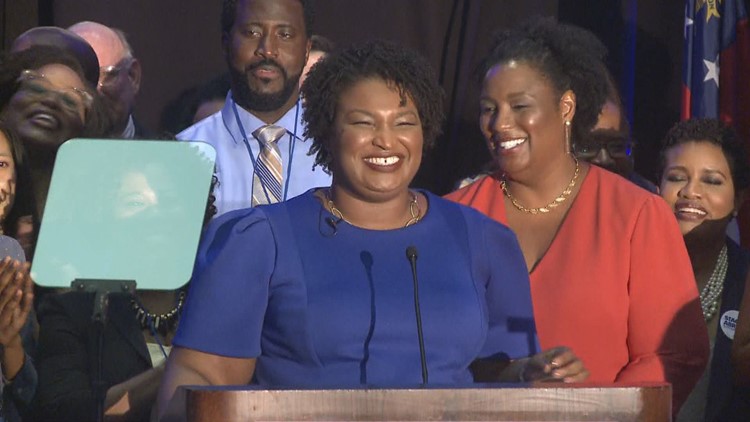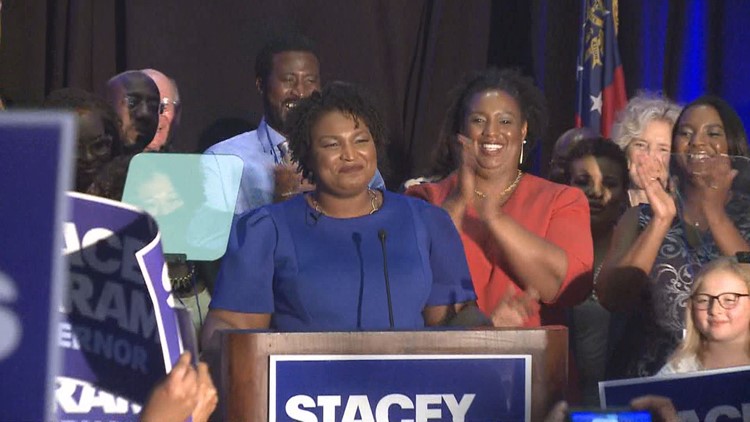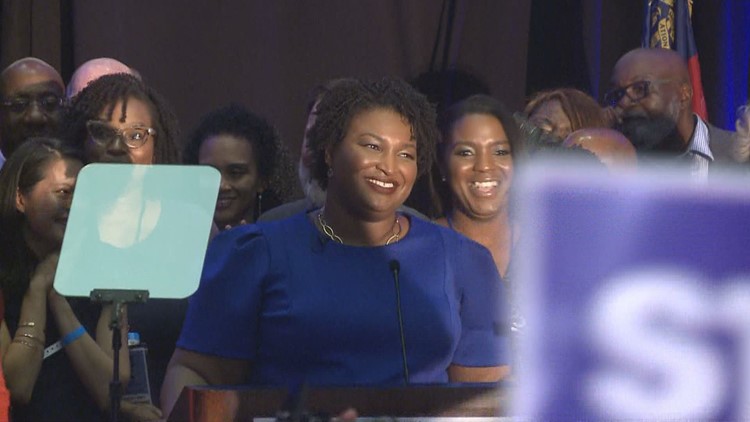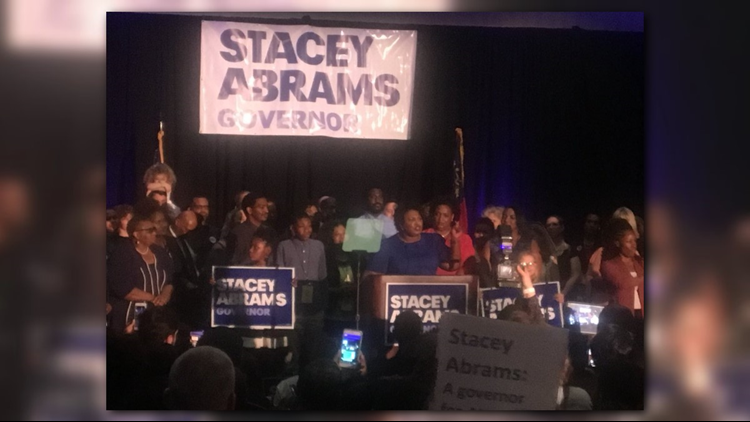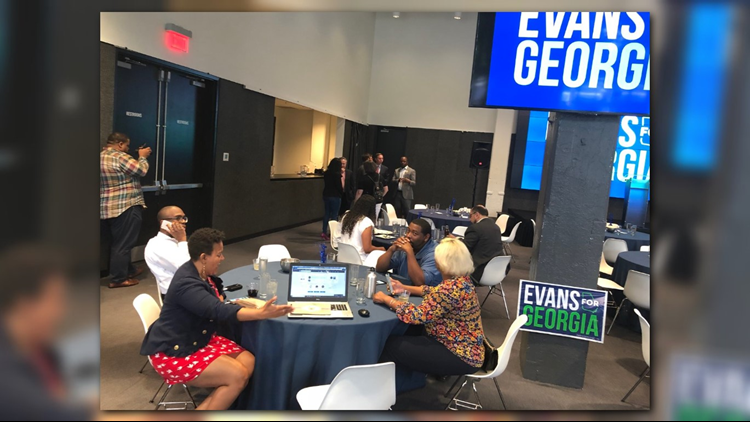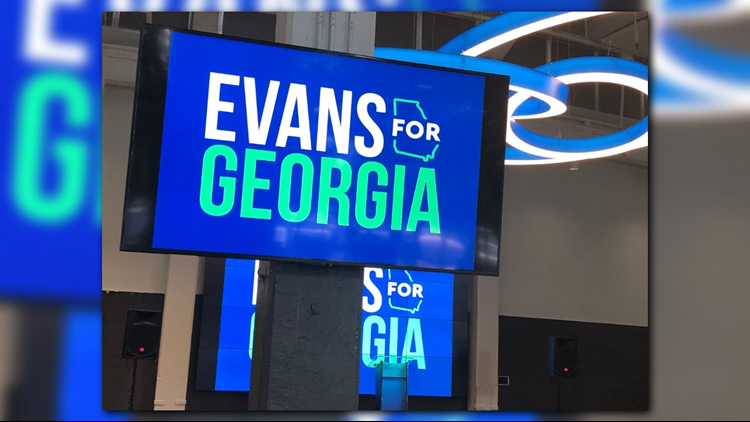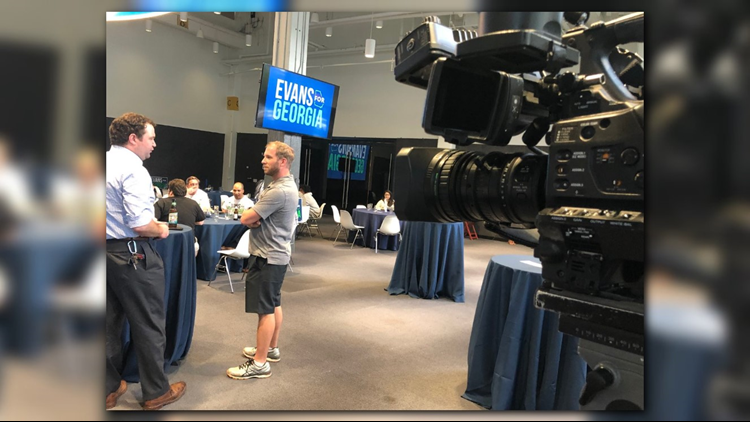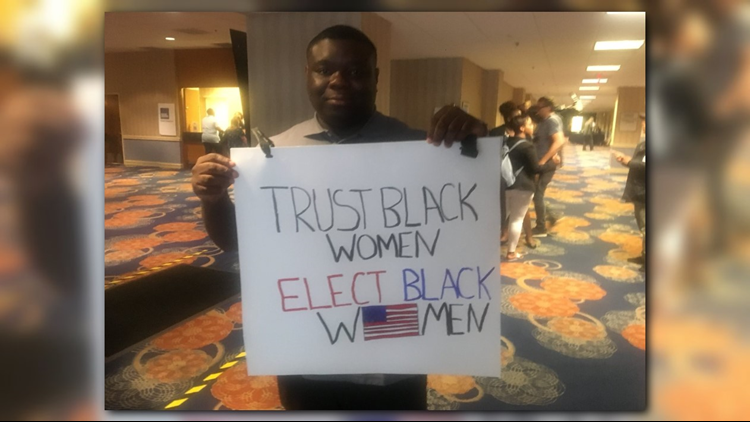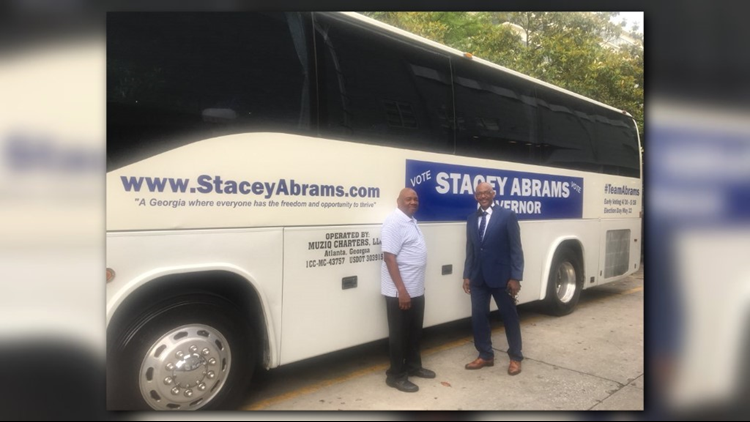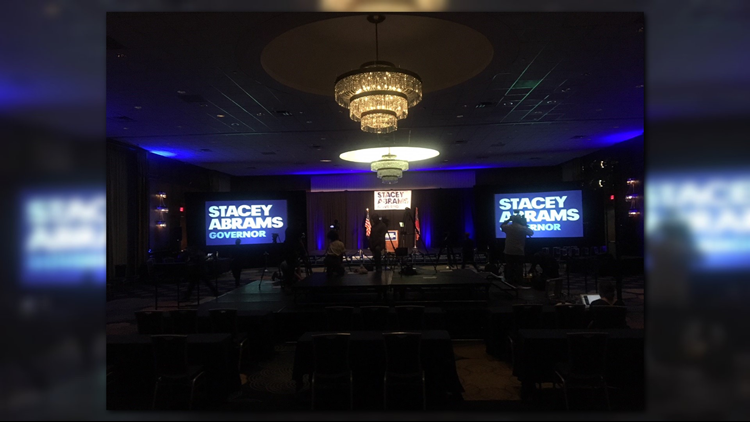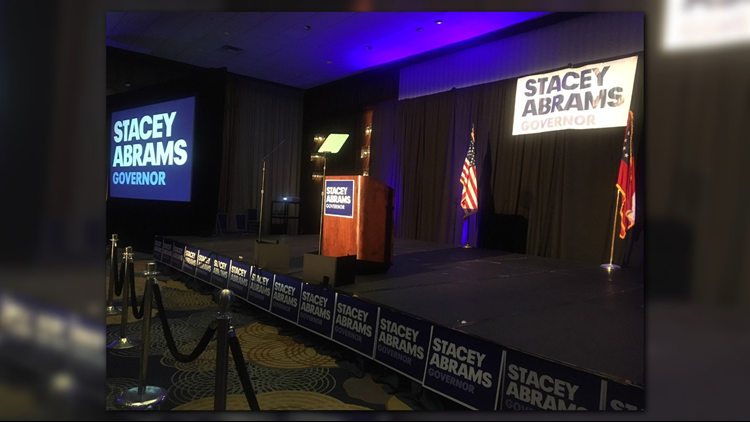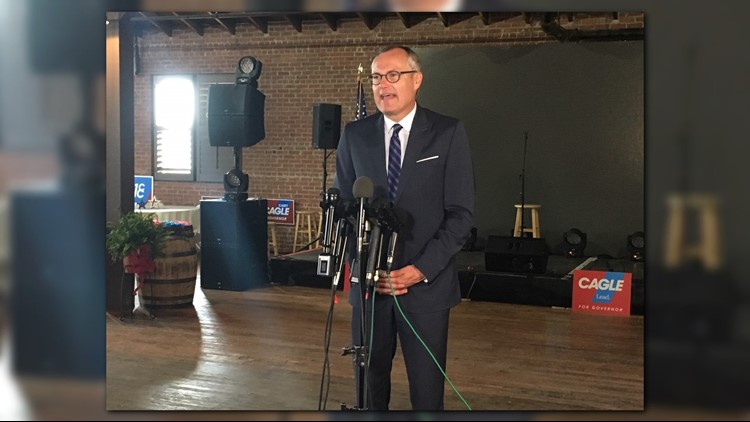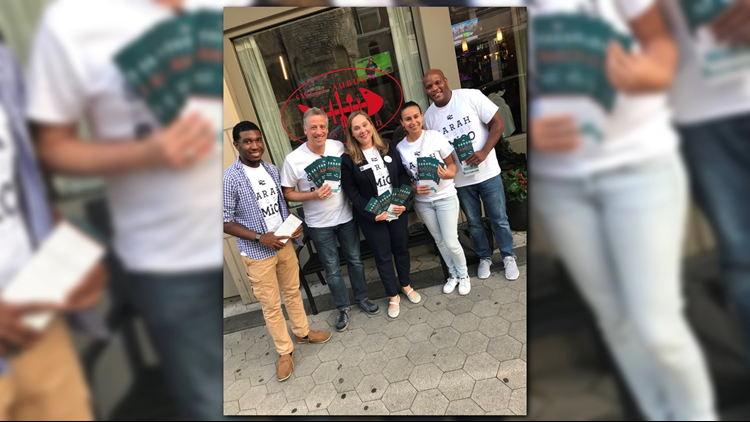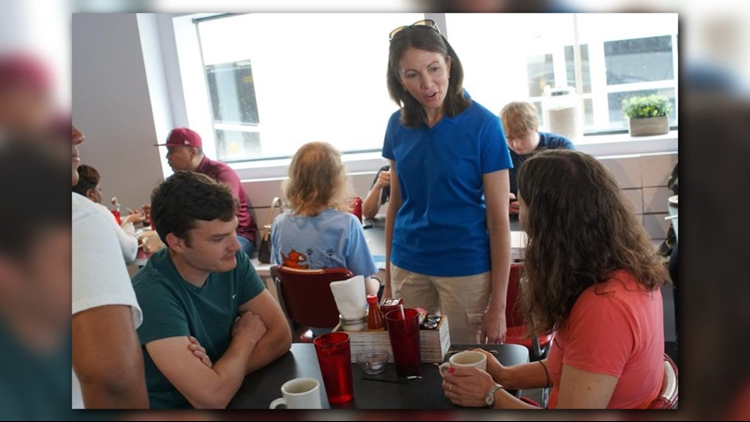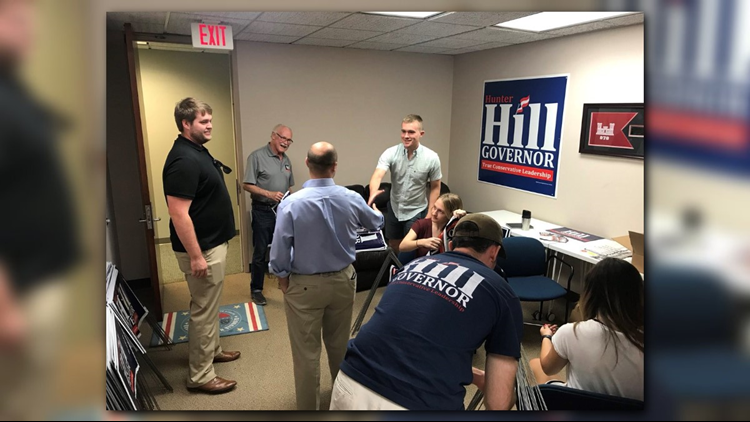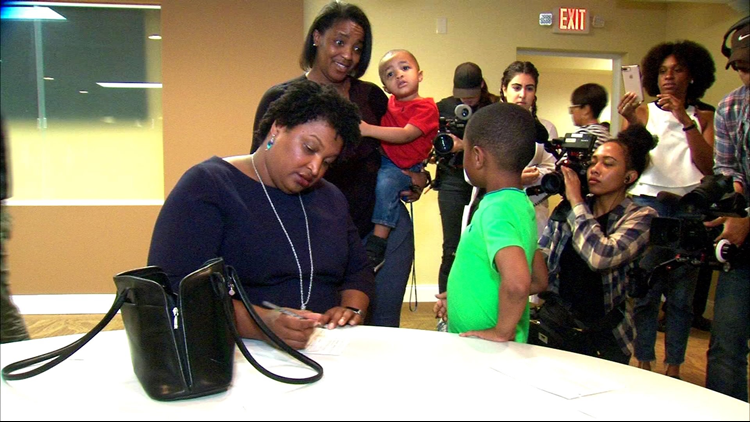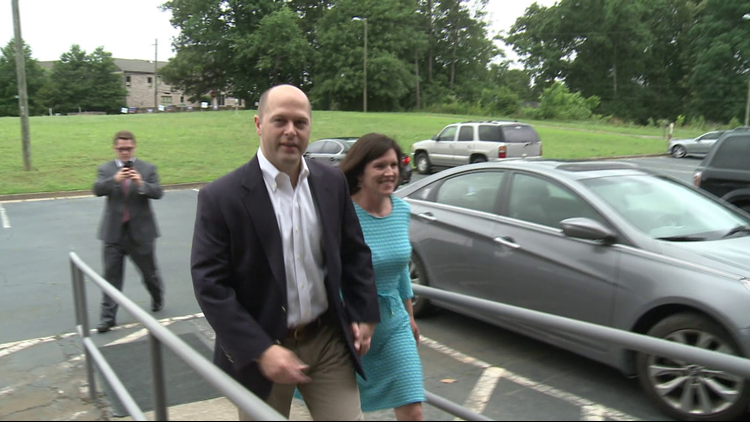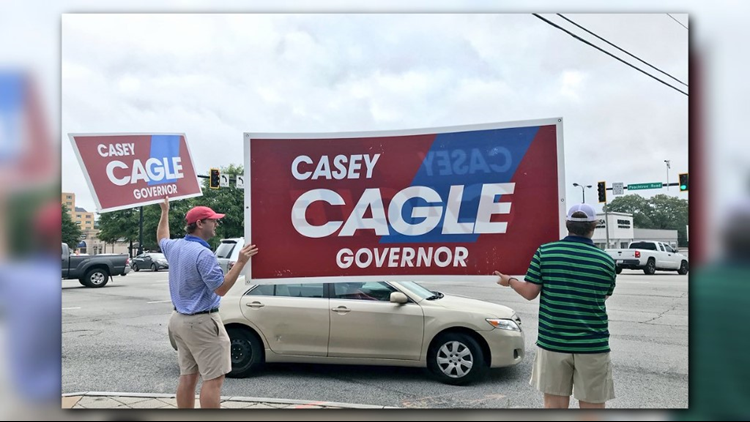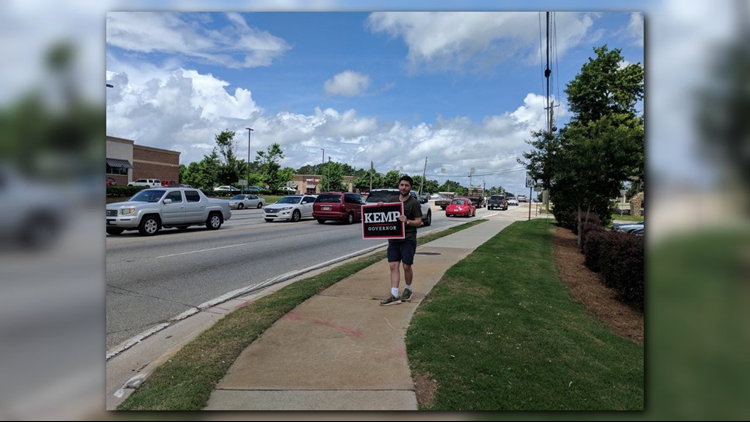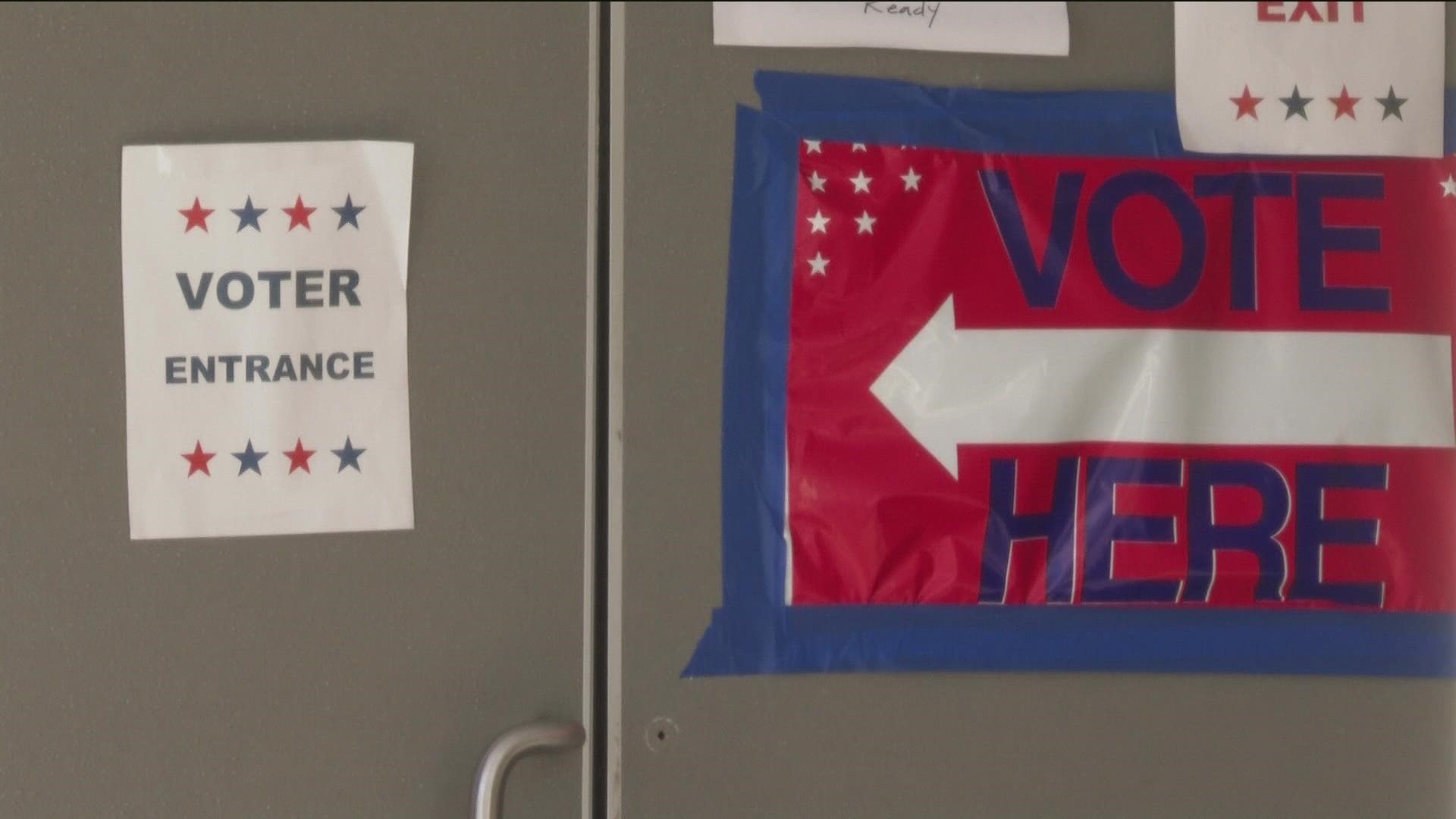Despite a historic night for Georgia's Democratic Party, primary election numbers still bring into question whether their candidate for governor can pull off a win in a traditionally red state.
Stacey Abrams made history on Tuesday night as the first African American woman nominated for governor by a major party.
"If she wins, she'll be the first black female governor in America and that's definitely something that's notable," Emory political science professor Andra Gillespie said. "It's notable for its racial breakthrough, it's also notable for its gender breakthrough in this state."
Gillespie said this makes her a high-profile candidate who will garner attention across the country. And it's a point that's not lost on Abrams herself.
"We have Democrats not only in Georgia but around the country that understand that our investment in the voices of Georgians led to a really strong and dramatic victory," she told 11Alive on Wednesday. "And we want to carry that same momentum through all the way to November."
GALLERY: Election day in Georgia
Abrams was also the only nominee officially named for the night since Republican candidates Casey Cagle and Brian Kemp were forced into a runoff.
But it's still not clear if the extra time with a focused campaign will overcome some of the hurdles Abrams faces in the race ahead. One of the biggest was demonstrated even amid her victory on Tuesday night.
"Abrams is going to have to harness that enthusiasm for the next few months to get her through the general election season," Gillespie said. "And so we've got to see whether or not she can harness that amongst Georgia voters."
Overall, 52 percent of those voting in the primary election were Republican. Only 48 percent were Democrats. But that may not be an accurate indicator of who comes to play in the upcoming election.
"The types of people who show up in primaries are really interested in politics and are politically knowledgeable and had a vested interest in what was going on," Gillespie said. "And ideologically, they tend to look different from the general election electorate."
That enthusiasm, right now, feeds off of the primary win where Gillespie said the public began to seep the possibility of her winning.
"She's still the underdog," Gillespie said. "There are still probably more Republicans than there are Democrats in this state but her decisive victory last night does help to dispel some ideas that she can't attract white support in particular."
She said it also suggests that she has a well-oiled field operation that might be able to drive up Democratic turnout.
"In previous primaries, you would see far fewer Democrats turn out to vote in elections, again because this state has a history, you know, in the last generation of being a Republican state," Gillespie said. "And so what we've seen in yesterday's election results was that, while there were still fewer Democrats who pulled ballots in yesterday's election, that margin has gotten much more narrow over time."
Abrams credited that to a not a base but a coalition.
"We had a coalition - a coalition that ran from north Georgia all the way to south Georgia," she said. "We won 153 of 159 counties and, in doing so, we demonstrated that we have a multi-racial, multi-ethnic, urban, rural and suburban coalition."
That translated to a difference of a little over 50,000 voters between Democrats and Republicans in this primary compared to hundreds of thousands in previous years.
"The fact that we came so close with a smaller field means that we have the energy behind us," Abrams said.
Abrams added that with 550,000 Democrats taking to the polls, this election also set a record for Democrat participation in a Georgia midterm primary election.
Time will tell if that momentum continues. But even if it's not enough to win in November, Gillespie thinks a strong turnout might be enough to bolster other Democratic races that follow.




